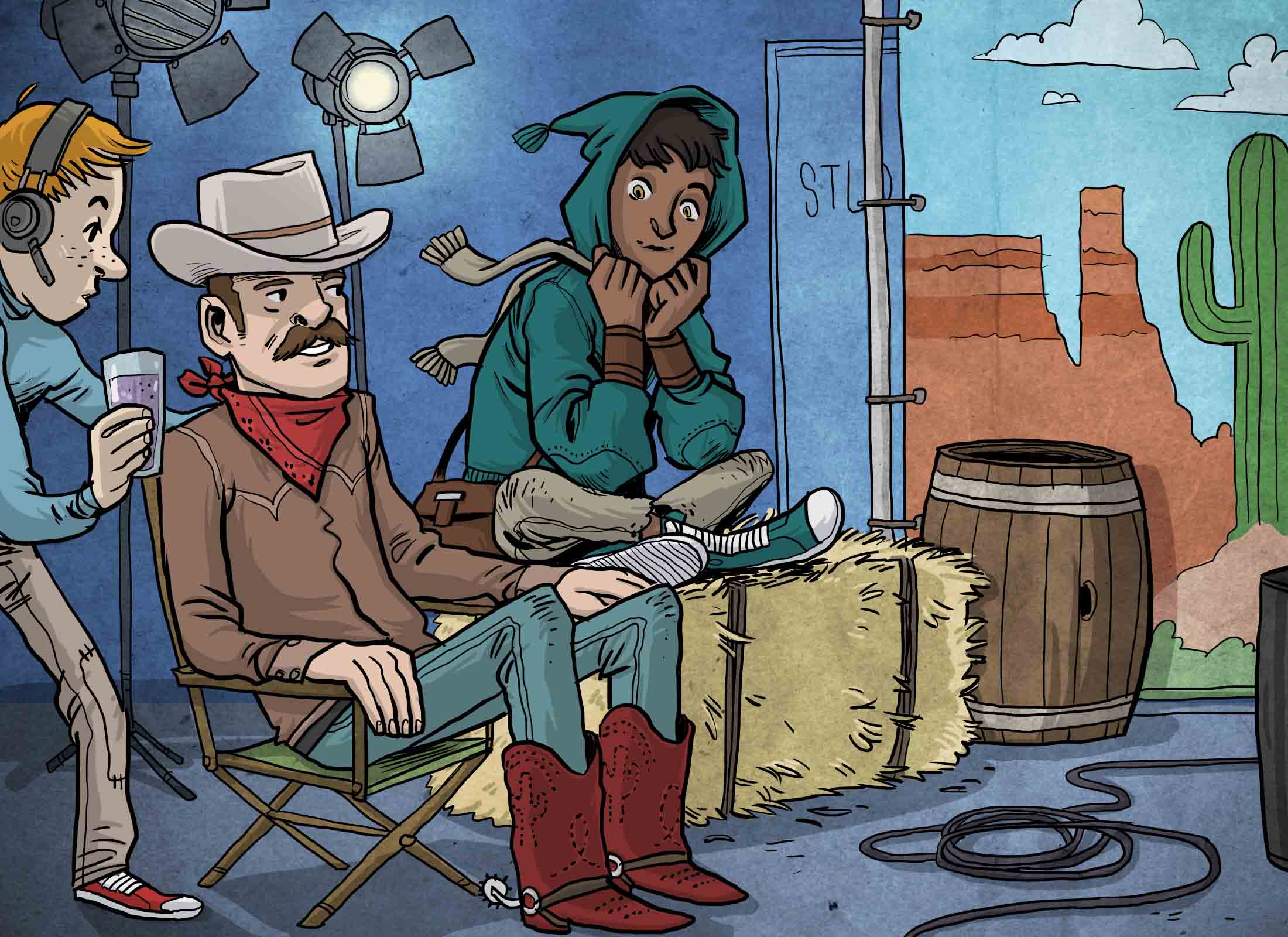

“Then you need to learn more about ethical egoism versus psychological egoism. You should meet my costar, David. He plays the Western hero whose rugged individualism allows him to conquer all obstacles. Just then, Mr. David Gauthier saunters onto the stage.
“I like to call my theory ‘rational egoism,’ but my thoughts are very close to ethical egoism, so I can give you a basic run down,” Gauthier offers. “Ethical egoism teaches that our actions should be done from the perspective of self-interest. Therefore, you don’t necessarily need to be a psychological egoist to subscribe to this ethical viewpoint. You may think that people naturally act altruistically but should act according to self-interest. My moral duties are ultimately duties to myself to further my own self-interest and my moral obligations towards others are justified if they promote my own self-interest,” Gauthier explains as a stage hand pops a large cowboy hat on his head and another assistant lifts up a glass of sarsaparilla for Gauthier to sip.
“You really get pampered as a celebrity,” you comment to Gauthier. “I can see why the rich and famous become so narcissistic and egotistical.”
“That does happen to some celebrities,” Gauthier admits. “But don’t mistake ethical egoism with egotists. An egotist demands to be the center of attention and is self-promoting – and many celebrities are this way. These celebrities are often prone to a type of egoism called individual ethical egoism where they think that all people in the world should strive to serve the celebrity’s interest. On the other hand, the enlightened ethical egoist can be modest and considerate of others if it is advantageous in the long run.” Gauthier continues, “For instance, the hero I play in this movie is this type of person. Many humans fall prey to the problem of being too little concerned for their own self-interest; they are carried away by what others think about them or religious dogma. This is a weakness. In this movie, the hero’s actions rightfully stem from his own interests. He is a self-made man who seeks only to fulfill his own goals without giving or receiving help from others. He is a man unto himself. He is strong and he survives!”
“That’s right,” agrees Hobbes. “Now of course, with everyone following self-interest, there is the potential for the state of nature to be one of ‘continual fear and danger of violent death, and the life of man, solitary, poor, nasty, brutish, and short.’[1] It might actually be in one’s self interest to enter a contract with others to restrain self-interest. However, if you want to learn more about my contract theories or my co-star’s contemporary contractualism, you’ll have to come back another time. We’re about to shoot a pivotal scene where the cowboy and his sidekick must devise a strategy to get out of the jailhouse. It’s a real Prisoner's Dilemma. I can see that the director wants us on set. I’m glad I could help you today because I enjoyed speaking with you, and your quest gives me self-satisfaction.”
As Hobbes and Gauthier take their places on set, a small man who looks to be right out the 1700s nearly bumps into you. “Are the director of this film?” you ask.
“No, no, I’m Adam Smith, a producer,” he says. “This movie based on ethical egoism appeals to me, but I’m more interested in capitalism. In a competitive, free-market system, people will rationally pursue their own interest to produce wealth. This means producing the best product and the lowest price compared to the competition. Movie making is a business, and I’m here to make sure our product sells. So I’m more interested in how self-interest applies to economy, but I don’t know that these market dynamics can be applied to an ethics of personal relations. If you want to speak to the director about that, she’s on the far right of the stage.”
[1] Thomas Hobbes, The Leviathan, 1651.